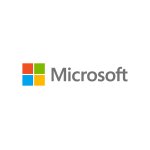
Microsoft
We believe screening in to diversify our workforce is fundamental to create products and services that will better serve our customers and employees. Skills, talent and passion will always be drivers for landing a job at Microsoft, but we're also focused on making our interviews more tailored to the individual and focused on someone's learning ability. It is important to us to understand what you can bring to Microsoft, your willingness to learn and how we can help you be successful, both on your first day at the company and in the future.
Redmond, Washington, United States
Redmond, Washington, United States
Company Information
We're on a mission to empower every person and every organization on the planet to achieve more.
Company History
MICROSOFT HISTORY
Microsoft Corporation is an American technology company headquartered in Redmond, Washington, that supports the invention, manufacturing, and licensing of goods and services related to computing. It was registered in New Mexico in 1976 after being formed the year before by two childhood friends. Here's how Microsoft was founded and a brief summary of the company's history.
Before Paul Allen and Bill Gates co-founded Microsoft, they were avid computer geeks in an age when access to computers was hard to come by. Allen and Gates even skipped high school classes to live and breathe in their school's computer room. Eventually, they hacked the school's computer and were caught, but instead of being expelled, they were offered unlimited computer time in exchange for helping to improve the school computer's performance.
With the help of partner Paul Gilbert, Gates and Allen ran their own small company, Traf-O-Data, while in high school and sold a computer to the city of Seattle for counting city traffic.
In 1973, Gates left Seattle to attend Harvard University as a pre-law student. However, Gates' first love never left him as he spent most of his time in Harvard's computer center, where he kept improving his programming skills. Soon Allen moved to Boston as well, working as a programmer and pressuring Gates to leave Harvard so they could work together full time on their projects. Gates was uncertain of what to do, but fate stepped in.
The Birth of Microsoft:
In January 1975, Allen read an article in Popular Electronics magazine about the Altair 8800 microcomputer and showed it to Gates. Gates called MITS, makers of the Altair, and offered his and Allen's services to write a version of the new BASIC programming language for the Altair.
After eight weeks, Allen and Gates demonstrated their program to MITS, which agreed to distribute and market the product under the name Altair BASIC. The deal inspired Gates and Allen to form their own software company. Thus, Microsoft was started on April 4, 1975 in Albuquerque, New Mexico—the home of MITS—with Gates as the first CEO.
Where the Name 'Microsoft' Came From:
On July 29, 1975, Gates used the name "Micro-Soft"—which had been suggested by Allen—in a letter to Allen referring to their partnership. The name, a portmanteau of "microcomputer" and "software," was registered with the New Mexico secretary of state on Nov. 26, 1976.
In August 1977, less than a year later, the company opened its first international office. The branch, located in Japan, was called ASCII Microsoft. In 1979, the company moved to Bellevue, Washington, and two years later it incorporated under the name Microsoft Inc. Gates was president of the company and chairman of the board, and Allen was executive vice president.
History of Microsoft Products:
Microsoft Operating Systems
An operating system is a fundamental software that allows a computer to operate. As a newly formed company, Microsoft's first operating system product to be publicly released was a version of Unix called Xenix, released in 1980. Xenix was later used as the basis for Microsoft's first word processor Multi-Tool Word, a predecessor to Microsoft Word.
Microsoft's first wildly successful operating system was MS-DOS (Microsoft Disk Operating System), which was written for IBM in 1981 and based on computer programmer Tim Paterson's QDOS (Quick and Dirty Operating System). In the deal of the century, Gates licensed MS-DOS to IBM but retained the rights to the software. As a result, Gates made a fortune for Microsoft, which had become a major soft vendor.
Microsoft Mouse
Microsoft's mouse was released on May 2, 1983.
Windows
Also in 1983, Microsoft's crowning achievement was released. The Microsoft Windows operating system had a novel graphical user interface and a multitasking environment for IBM computers. In 1986, the company went public. The success meant that Gates became a billionaire at age 31.
Microsoft Office
1989 marked the release of Microsoft Office, a software package that, as the name describes, is a collection of programs for use in an office. Still used today, it includes a word processor, spreadsheet, mail program, business presentation software, and more.
Internet Explorer
In August 1995, Microsoft released Windows 95. This included technologies for connecting to the internet, such as built-in support for dial-up networking, TCP/IP (Transmission Control Protocol/Internet Protocol), and the web browser Internet Explorer 1.0.
Xbox
In 2001, Microsoft introduced its first gaming unit, the Xbox system. Xbox faced stiff competition from Sony's PlayStation, and eventually, Microsoft discontinued the original Xbox in favor of later versions. In 2005, Microsoft released the Xbox 360 gaming console, which was a success.
Microsoft Surface
In 2012, Microsoft made its first foray into the computing hardware market with the announcement of Surface tablets that ran Windows RT and Windows 8 Pro.
Microsoft Corporation is an American technology company headquartered in Redmond, Washington, that supports the invention, manufacturing, and licensing of goods and services related to computing. It was registered in New Mexico in 1976 after being formed the year before by two childhood friends. Here's how Microsoft was founded and a brief summary of the company's history.
Before Paul Allen and Bill Gates co-founded Microsoft, they were avid computer geeks in an age when access to computers was hard to come by. Allen and Gates even skipped high school classes to live and breathe in their school's computer room. Eventually, they hacked the school's computer and were caught, but instead of being expelled, they were offered unlimited computer time in exchange for helping to improve the school computer's performance.
With the help of partner Paul Gilbert, Gates and Allen ran their own small company, Traf-O-Data, while in high school and sold a computer to the city of Seattle for counting city traffic.
In 1973, Gates left Seattle to attend Harvard University as a pre-law student. However, Gates' first love never left him as he spent most of his time in Harvard's computer center, where he kept improving his programming skills. Soon Allen moved to Boston as well, working as a programmer and pressuring Gates to leave Harvard so they could work together full time on their projects. Gates was uncertain of what to do, but fate stepped in.
The Birth of Microsoft:
In January 1975, Allen read an article in Popular Electronics magazine about the Altair 8800 microcomputer and showed it to Gates. Gates called MITS, makers of the Altair, and offered his and Allen's services to write a version of the new BASIC programming language for the Altair.
After eight weeks, Allen and Gates demonstrated their program to MITS, which agreed to distribute and market the product under the name Altair BASIC. The deal inspired Gates and Allen to form their own software company. Thus, Microsoft was started on April 4, 1975 in Albuquerque, New Mexico—the home of MITS—with Gates as the first CEO.
Where the Name 'Microsoft' Came From:
On July 29, 1975, Gates used the name "Micro-Soft"—which had been suggested by Allen—in a letter to Allen referring to their partnership. The name, a portmanteau of "microcomputer" and "software," was registered with the New Mexico secretary of state on Nov. 26, 1976.
In August 1977, less than a year later, the company opened its first international office. The branch, located in Japan, was called ASCII Microsoft. In 1979, the company moved to Bellevue, Washington, and two years later it incorporated under the name Microsoft Inc. Gates was president of the company and chairman of the board, and Allen was executive vice president.
History of Microsoft Products:
Microsoft Operating Systems
An operating system is a fundamental software that allows a computer to operate. As a newly formed company, Microsoft's first operating system product to be publicly released was a version of Unix called Xenix, released in 1980. Xenix was later used as the basis for Microsoft's first word processor Multi-Tool Word, a predecessor to Microsoft Word.
Microsoft's first wildly successful operating system was MS-DOS (Microsoft Disk Operating System), which was written for IBM in 1981 and based on computer programmer Tim Paterson's QDOS (Quick and Dirty Operating System). In the deal of the century, Gates licensed MS-DOS to IBM but retained the rights to the software. As a result, Gates made a fortune for Microsoft, which had become a major soft vendor.
Microsoft Mouse
Microsoft's mouse was released on May 2, 1983.
Windows
Also in 1983, Microsoft's crowning achievement was released. The Microsoft Windows operating system had a novel graphical user interface and a multitasking environment for IBM computers. In 1986, the company went public. The success meant that Gates became a billionaire at age 31.
Microsoft Office
1989 marked the release of Microsoft Office, a software package that, as the name describes, is a collection of programs for use in an office. Still used today, it includes a word processor, spreadsheet, mail program, business presentation software, and more.
Internet Explorer
In August 1995, Microsoft released Windows 95. This included technologies for connecting to the internet, such as built-in support for dial-up networking, TCP/IP (Transmission Control Protocol/Internet Protocol), and the web browser Internet Explorer 1.0.
Xbox
In 2001, Microsoft introduced its first gaming unit, the Xbox system. Xbox faced stiff competition from Sony's PlayStation, and eventually, Microsoft discontinued the original Xbox in favor of later versions. In 2005, Microsoft released the Xbox 360 gaming console, which was a success.
Microsoft Surface
In 2012, Microsoft made its first foray into the computing hardware market with the announcement of Surface tablets that ran Windows RT and Windows 8 Pro.
No job openings
